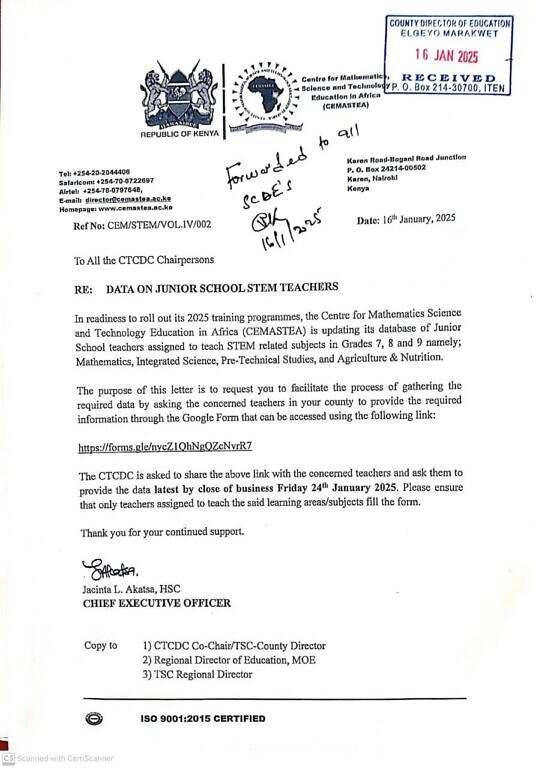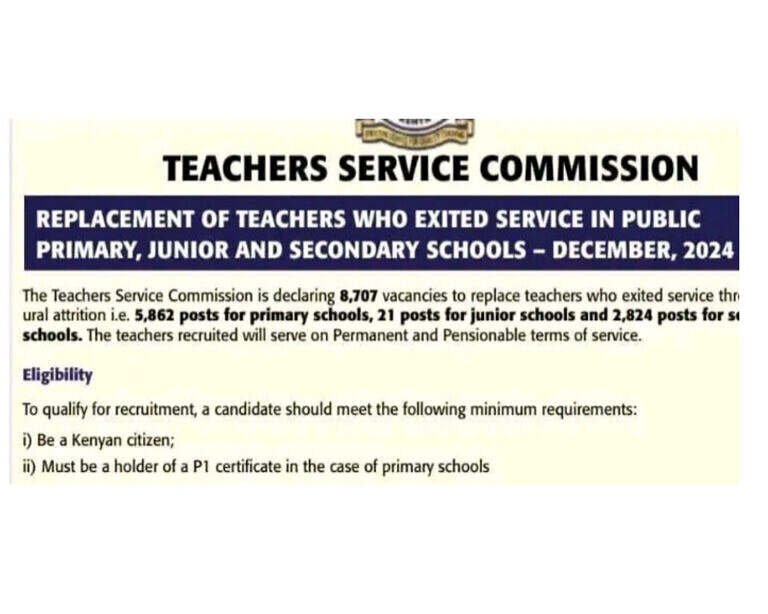
The dream of many unemployed P1 teachers and other educators in Kenya of securing greener pastures through the Mwalimu Majuu Program seems to be hanging in the balance. Despite the program’s initial buzz, both the Teachers Service Commission (TSC) and the government have maintained an eerie silence, leaving interested teachers in limbo.
What is the Mwalimu Majuu Program?
The Mwalimu Majuu Program is a concept aimed at facilitating the migration of qualified Kenyan teachers to international teaching opportunities. The initiative, designed to address local unemployment among teachers, particularly P1 certificate holders, promised an alternative for educators unable to secure jobs in Kenya due to dwindling hiring opportunities.
The program was also expected to be a collaborative effort between the government and TSC, ensuring that qualified teachers are linked with teaching opportunities abroad while meeting international teaching standards.
Why the Delay?
- TSC’s Lack of Updates
The TSC has remained tight-lipped on the program’s progress. Since its announcement, there has been no official communication outlining timelines, requirements, or processes for teachers interested in pursuing the opportunity. - Government’s Ambiguous Stance
Similarly, the government has not issued statements or directives to ensure the program’s rollout. This inaction has left teachers speculating about whether the initiative will ever take off or if it has been shelved altogether. - Prioritization of Local Challenges
Some experts argue that the delay may be attributed to the government’s focus on resolving pressing domestic issues in the education sector, such as addressing teacher shortages, curriculum changes, and promotion backlogs.
Impact on Teachers
Unemployed teachers, particularly P1 certificate holders, feel abandoned by the very institutions they rely on for support. Here’s how the prolonged silence is affecting them:
- Uncertainty and Frustration
Many teachers had high hopes for the program and even started preparing their documents and credentials for potential international opportunities. The lack of updates has bred frustration and disappointment. - Financial Strain
With no employment locally and no viable alternative, teachers continue to struggle financially, especially as living costs rise. - Career Stagnation
Without opportunities to teach either locally or abroad, many educators fear that their skills will stagnate, making it harder to compete in the global job market.
What Needs to Be Done?
To restore faith in the Mwalimu Majuu Program and provide unemployed teachers with a viable path forward, the following steps are crucial:
- Clear Communication
The TSC and the government should issue a joint statement to clarify the program’s status. Transparency will help manage expectations and avoid further frustration among teachers. - Develop a Timeline
Setting clear milestones and timelines for the program’s rollout will ensure that teachers know when and how to prepare. - Engage Stakeholders
Collaboration with international education agencies, embassies, and teacher unions like KUPPET and KNUT can fast-track the program and ensure its success. - Support Local Teachers
While pursuing international opportunities is important, the government and TSC should also address domestic unemployment by creating more teaching jobs and expanding professional development programs.
Final Thoughts
The silence surrounding the Mwalimu Majuu Program has left many teachers in despair, but all hope is not lost. Advocacy from teacher unions and public pressure could compel the TSC and the government to prioritize the initiative. In the meantime, teachers are encouraged to stay informed, diversify their skills, and prepare for any future updates.
For the latest updates on teaching opportunities and education news, keep visiting Mwalimu Sasa. Let’s hope 2025 brings better news for our hardworking teachers!






